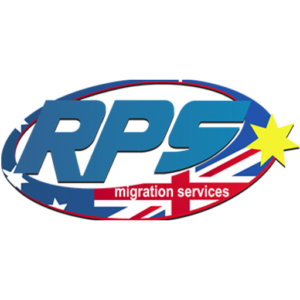Our Services
Optometrist

Optometrists play a crucial role in the Australian healthcare system, focusing on the diagnosis, treatment, and management of various eye conditions and vision problems. Here are some key aspects of their role:
Here are some key aspects of the role of doctors in the Australian healthcare system:
Optometrists conduct comprehensive eye examinations to assess visual acuity, refractive errors (such as nearsightedness or farsightedness), and overall eye health. These examinations may involve testing visual fields, depth perception, color vision, and assessing the health of the anterior and posterior segments of the eyes.
Based on their examination findings, optometrists prescribe corrective lenses such as glasses or contact lenses to improve visual acuity. They determine the appropriate lens power, type, and design based on individual needs.
Optometrists are trained to diagnose various eye conditions including glaucoma, cataracts, dry eye syndrome, and macular degeneration. They can provide initial treatment for certain conditions or refer patients to ophthalmologists for further evaluation or specialized care when necessary.
Optometrists may offer vision therapy programs for individuals with specific visual disorders, such as binocular vision problems, strabismus (eye misalignment), or amblyopia (lazy eye). These programs involve exercises aimed at improving coordination, focusing abilities, and overall visual function.
Optometrists specialize in fitting contact lenses based on individual needs. They assess corneal health, determine appropriate lens parameters, and provide guidance on proper wear, care, and maintenance. Optometrists also monitor patients’ ocular health while they are using contact lenses.
Optometrists play a vital role in promoting preventive measures for maintaining good ocular health. They educate patients about proper eyecare practices, such as regular eye examinations, sun protection measures, and lifestyle modifications that can help prevent or reduce the risk of eye conditions. They also emphasize the importance of early detection and intervention for optimal outcomes.
Optometrists often work collaboratively with other healthcare professionals, including ophthalmologists, general practitioners, and allied health providers, to ensure comprehensive and coordinated care for patients with complex eye conditions or systemic diseases that may affect ocular health.
When necessary, optometrists refer patients to ophthalmologists or other specialists for further evaluation, treatment, or surgical interventions. They may also be involved in co-managing patients’ care alongside other healthcare professionals to ensure continuity of treatment and follow-up.
Overall, optometrists play a vital role in promoting good vision and maintaining optimal eye health within the Australian healthcare system. Their expertise extends beyond prescribing glasses or contact lenses as they contribute to the early detection, treatment, and management of various eye conditions while emphasizing preventive measures for long-term ocular well-being.
Overseas-trained Optometrists
Overseas-trained optometrists make a significant contribution to the optometry profession in Australia. Here are some ways in which they contribute to the Australian healthcare system:

Addressing Workforce Shortages
Overseas-trained optometrists help address workforce shortages in certain areas of Australia where there may be a higher demand for eye care services but a limited number of locally trained optometrists available. Their skills and expertise help ensure that communities have access to essential eye care services.

Cultural Diversity and Language Skills
Optometrists who have been trained overseas bring cultural diversity and language skills that can benefit patients from diverse backgrounds. They can communicate effectively with patients who may have limited English proficiency, ensuring better understanding and delivery of eye care services.

Specialist Expertise
Some overseas-trained optometrists bring specialized knowledge or expertise in specific areas of optometry practice, such as contact lens fitting, low vision rehabilitation, pediatric optometry, or ocular disease management. This enhances the range of services available to patients and allows for more comprehensive care.

Knowledge Exchange
Overseas-trained optometrists often bring different perspectives, experiences, and approaches to patient care based on their training from other countries. They contribute to knowledge exchange within the profession by sharing their insights on different treatment modalities, research findings, and advancements in technology. This enriches the overall practice of optometry in Australia.

Continuous Professional Development (CPD)
Overseas-trained optometrists are required to engage in ongoing CPD activities as part of maintaining their registration. This ensures that they stay up-to-date with current best practices, research advancements, and changes within the Australian healthcare system. Their participation in CPD activities contributes not only to their professional development but also helps enhance overall standards within the field.

Collaboration and Networking
Overseas-trained optometrists often collaborate with local practitioners, specialists, and other healthcare professionals. They participate actively in professional networks, associations, and conferences, which foster collaboration and knowledge sharing. This collaboration strengthens the optometry profession as a whole and promotes interdisciplinary care for patients.

Rural and Remote Practice
Many overseas-trained medical radiographers actively engage in professional development activities such as attending conferences, presenting research findings, and participating in ongoing education programs. They contribute to the advancement of medical radiography practice in Australia through their involvement in research projects or sharing innovative techniques.
The contribution of overseas-trained optometrists is highly valued in Australia as they bring diverse skills, knowledge, and experiences that complement the local workforce. They play an important role in meeting the eye care needs of communities across the country while contributing to professional development, cultural diversity, and improved patient outcomes.
Registration of Optometrists
The registration process for overseas-trained optometrists in Australia involves several steps to ensure that they meet the necessary standards and qualifications required to practice optometry in the country. Here is an overview of the registration process:

1. Australian Health Practitioner Regulation Agency (AHPRA) Registration
The first step is to apply for registration with AHPRA, which is the national agency responsible for regulating health practitioners in Australia. Overseas-trained optometrists need to submit an application form, along with supporting documents such as proof of identity, evidence of English language proficiency, and verification of their primary qualification.

2. Optometry Board of Australia (OBA) Assessment
Once registered with AHPRA, overseas-trained optometrists need to undergo an assessment by the Optometry Board of Australia (OBA). The OBA assesses their qualifications and determines if they are substantially equivalent to Australian standards. This assessment may involve a review of educational transcripts, clinical experience, and any additional training or qualifications obtained.

3. Bridging Program
Depending on the outcome of the OBA assessment, overseas-trained optometrists may be required to complete a bridging program approved by the OBA. Bridging programs are designed to address any gaps between their overseas qualifications and Australian standards. They provide additional training and education specific to Australian optometry practice.

4. National Boards' Decision
After completing any required bridging program or meeting other specified requirements, the National Boards will make a decision regarding registration. If deemed eligible, the overseas-trained optometrist will be granted general or limited registration based on their individual circumstances. General registration allows independent practice while limited registration may have certain conditions or restrictions.

5. Continuing Professional Development (CPD)
Once registered, optometrists are required to engage in ongoing CPD activities. This ensures that they stay up-to-date with current best practices, research advancements, and changes within the profession. Ongoing CPD helps maintain professional competence throughout their career.
It’s important to note that the registration process may vary depending on individual circumstances, including the country of origin, qualifications obtained, and previous experience. It is advisable for overseas-trained optometrists to refer directly to the Optometry Board of Australia (OBA) and Australian Health Practitioner Regulation Agency (AHPRA) websites for detailed information and specific requirements.
Engaging the services of migration agents or professional organizations specializing in assisting overseas-trained healthcare professionals can also provide valuable guidance and support throughout the registration process. These experts can help navigate through the requirements, assist with documentation, and provide advice on any additional steps that may be necessary.
Assistance of RPS Migration Services
RPS Migration Services can assist overseas-trained optometrists in preparing for their registration process in Australia. They specialize in providing migration and registration assistance to healthcare professionals, including optometrists. Here are some ways in which they can support overseas-trained optometrists:
RPS Migration Services will assess the qualifications of the overseas-trained optometrist to determine their eligibility for registration in Australia. They will review educational transcripts, clinical experience, and any additional training or qualifications obtained.
RPS Migration Services will provide clear guidance on the specific requirements for registration as an optometrist in Australia. This may include information on documentation needed, English language proficiency requirements, and any additional steps such as completing a bridging program.
RPS Migration Services can assist with compiling and organizing the necessary documentation required for the registration process. This includes proof of identity, educational transcripts, certificates of professional standing, and evidence of English language proficiency. They ensure that all documents meet the required standards and are submitted accurately.
RPS Migration Services can guide overseas-trained optometrists through the application process for both AHPRA registration and assessment by the Optometry Board of Australia (OBA). They help complete application forms correctly, address any queries or concerns, and ensure that all necessary supporting documentation is included.
RPS Migration Services acts as an intermediary between overseas-trained optometrists and regulatory bodies like AHPRA, OBA, and other relevant organizations. They communicate directly with these bodies on behalf of clients, to ensure that all necessary information is provided, and any queries or concerns are addressed promptly. This streamlines communication and saves time during the application process.
Migration rules, registration requirements, and processes can change over time. RPS Migration Services stays up to date with the latest developments in migration laws, policies, and registration procedures. They will inform clients about any changes that may affect their application or registration status, ensuring ongoing compliance throughout the process.
It’s important to note that while engaging RPS Migration Services can offer valuable assistance, it’s always advisable to conduct thorough research, refer directly to official regulatory bodies’ websites for accurate information, and consider multiple sources of advice when making decisions regarding migration and registration processes.
